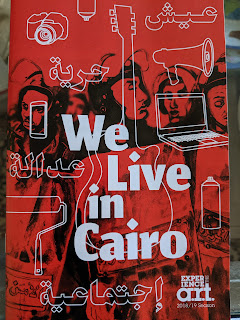Milli Gazette: Sad news in color, Shahabuddin prescription for the community
Milli Gazette, 16-31 August 2009 turned the front, back, and middle pages in color. It has been color when it just launched so after about 9 years color has returned to MG pages but that's not the sad news. This issue which is in color delivers news of death of three Muslim personalities- Kamala Surayya, Muhammad Shihab Thangal and Syed Abdullah Bukhari.
Obituary of Syed Abdullah Bukhari is written by Syed Shahabuddin who was with him during the Babri Masjid Action Committee days. It is a nice biography of Mr. Bukhari.
Syed Shahabuddin has another article in the same issues titled 'What can Muslim Indians do for themselves." In it he gives a vision for the development of the community. Let me quote few sentences:
"... the Muslims must realize that it is not only they but nearly 80% of the people feel that 60 years of democracy and growth has passed them by, without any movement of social justice."
"Nor should Muslims lose sight of the fact that the people of India share a common destiny and that whatever the historical antipathies if the country goes forward, the Muslims cannot be left totally behind."
"... the religious and political class are both parasitical. The first eats into its meager resources to run its institutions. The political class is too close to the power structure to speak for them. It acts as the 'dalal'."
"... largely Zakat gravitates towards ostensibly religious purposes like repair and construction of madrasas and there is little appreciation of the role that Zakat can play as the instrument to meet the collective need of the community to create a Muslim friendly social enviorenment, to achieve a larger and higher social purpose."
"... the wakf properties which are often situated in urban areas and their commercial development can generate substantial resources for the community for development, particularly for education and mini-enterprises."
"To operationalise all these, the community needs a pool of expererienced, dedicated, knowledgable and trustworthy leaders at all levels from the village to the state who will rise above all sectarian fissures, caste cleavages and political differences and manage all local religious institutions like Wakf estates, Masjids with attached Maktabs, Qabristans, Madrasas and schools. "
International pages this issue- 5.
Obituary of Syed Abdullah Bukhari is written by Syed Shahabuddin who was with him during the Babri Masjid Action Committee days. It is a nice biography of Mr. Bukhari.
Syed Shahabuddin has another article in the same issues titled 'What can Muslim Indians do for themselves." In it he gives a vision for the development of the community. Let me quote few sentences:
"... the Muslims must realize that it is not only they but nearly 80% of the people feel that 60 years of democracy and growth has passed them by, without any movement of social justice."
"Nor should Muslims lose sight of the fact that the people of India share a common destiny and that whatever the historical antipathies if the country goes forward, the Muslims cannot be left totally behind."
"... the religious and political class are both parasitical. The first eats into its meager resources to run its institutions. The political class is too close to the power structure to speak for them. It acts as the 'dalal'."
"... largely Zakat gravitates towards ostensibly religious purposes like repair and construction of madrasas and there is little appreciation of the role that Zakat can play as the instrument to meet the collective need of the community to create a Muslim friendly social enviorenment, to achieve a larger and higher social purpose."
"... the wakf properties which are often situated in urban areas and their commercial development can generate substantial resources for the community for development, particularly for education and mini-enterprises."
"To operationalise all these, the community needs a pool of expererienced, dedicated, knowledgable and trustworthy leaders at all levels from the village to the state who will rise above all sectarian fissures, caste cleavages and political differences and manage all local religious institutions like Wakf estates, Masjids with attached Maktabs, Qabristans, Madrasas and schools. "
International pages this issue- 5.

Comments